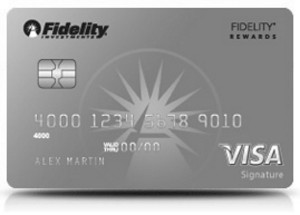The New Year got off to a sour start for American Express, with today’s announcement that the Fidelity Investment Rewards American Express credit card will be replaced by the Fidelity Rewards Visa Signature card, issued by U.S. Bank.
replaced by the Fidelity Rewards Visa Signature card, issued by U.S. Bank.
With its 2 percent cash-back feature, the Fidelity credit card has become a favorite of rewards-focused consumers, myself included. In addition to the cash rebate, which must be deposited in a Fidelity account, the card benefits include the following:
- No annual fee
- No caps on earning or rewards
- EMV chip technology
- Enabled for Apply Pay, Samsung Pay, Android Pay
All new Fidelity cards will be issued as Visa cards, and outstanding American Express-branded cards will be replaced with Visa cards in mid-2016.
A Good Card Gets Better
With the card’s signature generous cash rebate and no-annual-fee feature remaining in place, the rebranding will be a net positive for consumers on the basis of coverage alone. Visa cards are accepted by around 9.5 million merchants, versus just 6.9 million for American Express (2014 figures, from The Nilson Report).
For budget-conscious travelers, the Fidelity card lacks one key feature: foreign-transaction fee waiver. Although it’s just 1 percent for the Fidelity card, relatively low by industry standards, there are plenty of rewards cards that waive the fee altogether, making them a better option for overseas purchases.
If you already have a Fidelity account, this credit card offers a reliably solid rebate, with no need to work around shifting category bonuses.
Otherwise, consider the Citi Double Cash card, that also rebates 2 percent, also boasts no annual fee, and issues the cash back as a check or statement credit—no link required to a Fidelity account.
RELATED: Frequent Flyer Miles or Cash Back? The Game’s Afoot
American Express, Down but not Out
Fidelity is just the latest American Express marketing partner to take its business elsewhere. Last year, both Costco and JetBlue dropped Amex.
For all the resources it devotes to maintaining its brand’s luster, American Express is fighting a losing battle, against the commodification of credit cards. Retailers are increasingly unwilling to pay the higher merchant fees charged by American Express; and consumers are focused on a card’s value proposition rather than its prestige factor.
In the long run, American Express’s comeuppance could be good for consumers, if it tamps down the company’s hubris and sparks a renewed focus on delivering superior value.
Reader Reality Check
What do you look for in a rewards card?

Leave a Reply